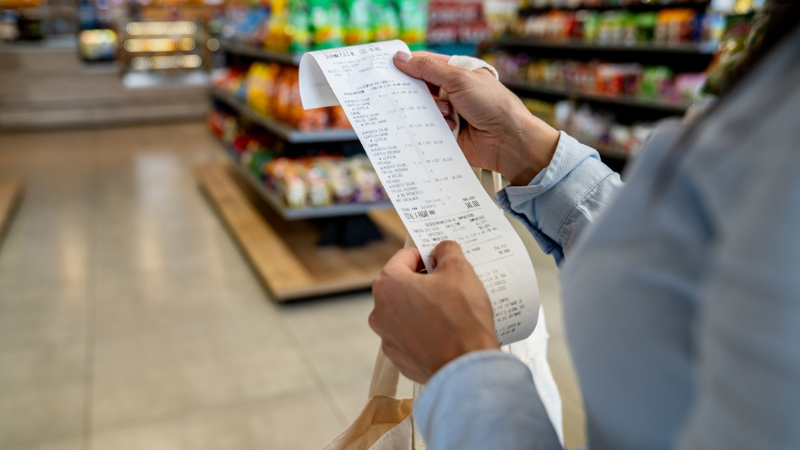
CHICAGO, September 15, 2025 —With
prices already rising because of President Trump’s tariffs, Congressional lawmakers from both political parties are drafting legislation that would exempt foods and beverages from the import duties.
Rep. Haley Stevens (D-Mich.) introduced a bill this week that would require Congressional approval of any new surcharges proposed by the White House on foods and beverages. The okay from lawmakers would be required only for new tariffs, not the duties already in place.
The No Tariffs on Groceries Act is intended to hold down the prices of meals prepared at home. But the wording in effect extends the approval requirement to all foods and beverages coming into the country, regardless of whether they’re sold by supermarkets or restaurants.
The need for a Congressional okay would apply to both finished products—ready-to-serve guacamole, for instance—and imported raw ingredients used as components of a meal, such as the avocados and lime juice used to make the dip.
Similar legislation has been introduced in the upper chamber of Congress by Sen. Maria Cantwell (D-Ore.). It, too, aims to restore control of tariffs to Congress.
Meanwhile, Reps. Don Bacon (R-Neb.) and Ro Khanna (D-Calif.) are drafting legislation that would end Trump's tariffs on coffee,
according to The Washington Post.
Prices of the popular morning eye-opener are running about 21% above what they were a year ago, according to the U.S. Bureau of Labor Statistics (BLS). Most economists attribute the steep climb to Trump’s tariffs, particularly the 50% surcharge levied on coffee from Brazil. A steep duty has also been imposed on coffee imported from Vietnam, an emerging major source.
Simultaneous with the legislative activity, about 100 representatives of small businesses held a protest against the tariffs on the steps of the U.S. Supreme Court and Congress this week, calling it the We Pay the Tariffs Day of Action.
The participants’ stated goal was convincing the legislative and judicial branches of the federal government that the White House is incorrect in its insistence the tariffs would be paid by exporting producers and nations, with no passalong to U.S consumers. A number of retailers and restaurant operators have already raised prices or aired plans to do so as stockpiled reserves of imported goods are depleted.
In a related development, the Supreme Court said that it would begin hearing arguments on the legality of Trump’s tariffs on Nov. 5.
The U.S. Court of International Trade and the U.S. Federal Court of Appeals for the Federal District have both already ruled that Trump lacked the authority under a 1970s wartime powers law to unilaterally impose import duties in the fashion he has. But the appeals court allowed collection of the surcharges to continue until at least Oct. 14.
If the Supreme Court upholds the appeals court’s ruling, about half the money collected under Trump’s tariffs would have to be refunded, according to U.S. Secretary of the Treasury Scott Bessent.
The federal government said it has collected $92 billion in tariff revenues year-to-date, but that tally includes proceeds collected before Trump’s heightened charges went into effect in two waves. In April, a 10% surcharge was imposed on most imports. That rate was raised substantially for a number of countries in early August.
The impact of the August “reciprocal tariffs” was widely cited as the reason for grocery prices surging 0.6% last month, compared with a decline in July of 0.1%.
Menu-price inflation held steady, rising by 0.3%, or the same rate that was clocked in July.
Many economists had projected that the tariffs’ impact on consumer goods would not likely be felt until the year-end holiday shopping season. A consensus emerged that goods stockpiled in U.S. warehouses in anticipation of the tariffs had been depleted sooner than expected, leading to the acceleration in inflation.
A dire warning about the impact of the tariffs was issued a week ago by The Budget Lab of Yale, a non-partisan thinktank that analyzes the financial impact of federal economic policies. The Lab warned that the elevated import duties will likely push between 650,000 to 875,000 more Americans into poverty.
Trump announced around the same time the report was issued that he’d be willing to lift the tariffs on foods and other consumer goods if their source nations would enter into a side trade deal with the U.S.
The number of nations that have pursued those deals has yet to be revealed.
As Managing Editor for IFMA The Food Away from Home Association, Romeo is responsible for generating the group's news and feature content. He brings more than 40 years of experience in covering restaurants to the position.